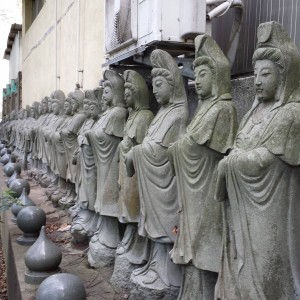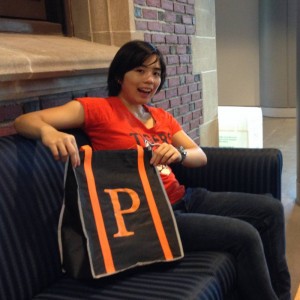
When I was a freshman, President Shirley Tilghman stood on the stage in McCarter Theater and told us, a crowd of alert and excited newly enrolled students: “If you’re wondering whether you belong here, you do. We don’t make mistakes.”
I wanted very hard to believe that. I was in awe of all of my classmates who seemed so talented and brilliant. I loved talking to them, but at the end of the day, I felt inadequate. I spent a lot of time wondering whether President Tilghman’s words really applied to me.
Classes brought with them a crushing sense of inadequacy. Forget Electrical Engineering—I couldn’t even score well on my midterm in basic Physics Mechanics. I thought I understood the examples and could work out the problems, but there was always some careless mistake here or there, an assumption I had missed, a connection I had failed to see.
Engineering is not a particularly forgiving major in that respect. People tend to think it requires a great deal of natural talent to succeed, as shown by Princeton Philosophy Professor Sarah-Jane Leslie. As a result (and in addition to fields such as philosophy and computer science), engineering tends to discourage those who don’t believe they match up to the labels “genius” or “brilliant” (who, interestingly enough, are often women).

And I definitely didn’t feel like a genius. I had always pushed forward by working as hard as I could, but I felt like I was at my limits. Diving into research my freshman summer was a relief. I didn’t have to compete with other people for a grade. With no harsh deadlines and competition, I learned faster and fuller than I had in any of my classes. For the first time, I felt like my efforts were worth it.
Still, research brought a new set of challenges. Careless mistakes in the lab had real consequences. There were real engineering considerations that couldn’t be solved only using equations. Despite my age, I couldn’t help but contrast my clumsiness to the fluidity and poise of the graduate students.
You’ve probably heard of the term “Imposter Syndrome”: the feeling that your own successes are not yours. You worry constantly that others will eventually “discover” your true unaccomplished and unintelligent self. I had suffered from those kinds of thoughts throughout high school and coming into Princeton, I always questioned myself and feared I would fail. Although my successes in research began to mitigate those doubts, they still hovered over me like dark clouds.
Maybe one thing that helped me start to overcome those thoughts was that “the worst” did happen.
Maybe one thing that helped me start to overcome those thoughts was that “the worst” did happen. My adviser was on the panel to evaluate my research presentation in sophomore year, and he threw a curveball during the Q&A session. His question touched on basic concepts that hadn’t even occurred to me. I faltered when my answers came short of his expectations. As much as I thought I had prepared, I simply didn’t know.

After that event, I felt defeated—as if my adviser would realize how daft I was and give up on me. For a while, I felt terrible when I’d meet with him, fearing that he was disappointed because of the presentation. But he didn’t stop helping me and giving me new research opportunities. I was motivated even more to make up for my previous mistakes. There was a sort of freedom in having already messed up—it gave me permission to ask for help when I felt confused. The dark clouds of doubt began to thin.
I wish I could say I’ve completely overcome my self-doubts. I still wrestle with these invasive thoughts that “I’m not smart enough”— thoughts that I recognize are useless, but sometimes your mind gets stuck on things that don’t matter. Nevertheless, engaging in research has helped me develop a realistic sense of my abilities and limitations. And having found that niche, I’ve come to think that perhaps President Tilghman was right: maybe I do belong at Princeton, after all.
–Stacey Huang, Engineering Correspondent

